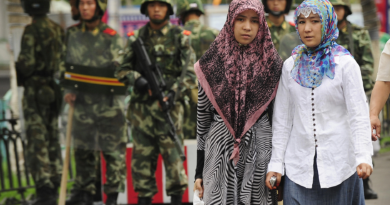The Straits Times says: Walking the talk on being inclusive
The Straits Times

Some 60,000 short-term bed spaces will be created to house foreign workers here by the end of this year in the first step towards a major overhaul of dormitories announced this week. With workers who stayed at close quarters accounting for more than 90 per cent of the Covid-19 cases in Singapore, the dorms of the future will be designed to not only reduce the risk of similar outbreaks, but to also respond quickly when one does happen. This overhaul of the physical model stems from lessons learnt from the pandemic, that are being acted on quickly. It is not that the earlier model was wrong but that its shortcomings have come to the fore because of the public health crisis. Addressing them is the right thing to do.


AD SPACE RESERVE FOR YOU
Contact:
Memento Maxima Digital Mktg. @ [email protected]
..
However, even as the authorities implement better management and an improved physical model for the housing of foreign workers, Singaporeans need to complement these efforts with a new social model and attitude that are inclusive and compassionate. It is inevitable in land-scarce Singapore that some of the planned dormitory sites will be near residential areas. Indeed, there will be a temporary fitting out of currently unused state properties, including former schools and vacant factories. As several of such vacant schools are situated in the heart of neighbourhoods, housing foreign workers there will bring them directly into the community. This could draw reactions from those Singaporeans who are of the “not in my backyard” (Nimby) mindset.


AD SPACE RESERVE FOR YOU
Contact:
Memento Maxima Digital Mktg. @ [email protected]
..
It is an attitude that targets not just foreign workers but any “outsider” group whose physical proximity is considered undesirable for one reason or another. In 2012, for example, residents in areas such as Bishan, Woodlands and Jalan Batu expressed their resistance after news that eldercare facilities would be built in their neighbourhoods. They eventually came around to accept the situation – growing to embrace the facilities because of the convenience it provided for the seniors in their midst. The Nimby syndrome, as it applies to foreign workers or other groups, often stems from a sense that established neighbourhoods are privileged social spaces where not everyone is welcome.


AD SPACE RESERVE FOR YOU
Contact:
Memento Maxima Digital Mktg. @ [email protected]
..
As a society, Singapore needs to make clear that there is no place for such attitudes here. The better approach was that which emerged during the pandemic in the many expressions of support for migrant workers and their need for better living conditions. Most people appreciate their crucial role in Singapore’s economic and physical development. Growth here, in turn, provided a lifeline for such workers and their families back home. Now that a major step is being taken to improve the environment in which they live, all Singaporeans must walk the talk. The plan for new dormitories is an important and necessary path to take towards a more tolerant and inclusive society.


AD SPACE RESERVE FOR YOU
Contact:
Memento Maxima Digital Mktg. @ [email protected]
..
Read the latest on the Covid-19 situation in Singapore and beyond on our dedicated site here.
Get The Straits Times app and receive breaking news alerts and more. Download from the Apple App Store or Google Play Store now.


SIGN UP TO RECEIVE OUR EMAIL
.
The most important news of the day about the ASEAN Countries and the world in one email: [email protected]
6.3.2020









